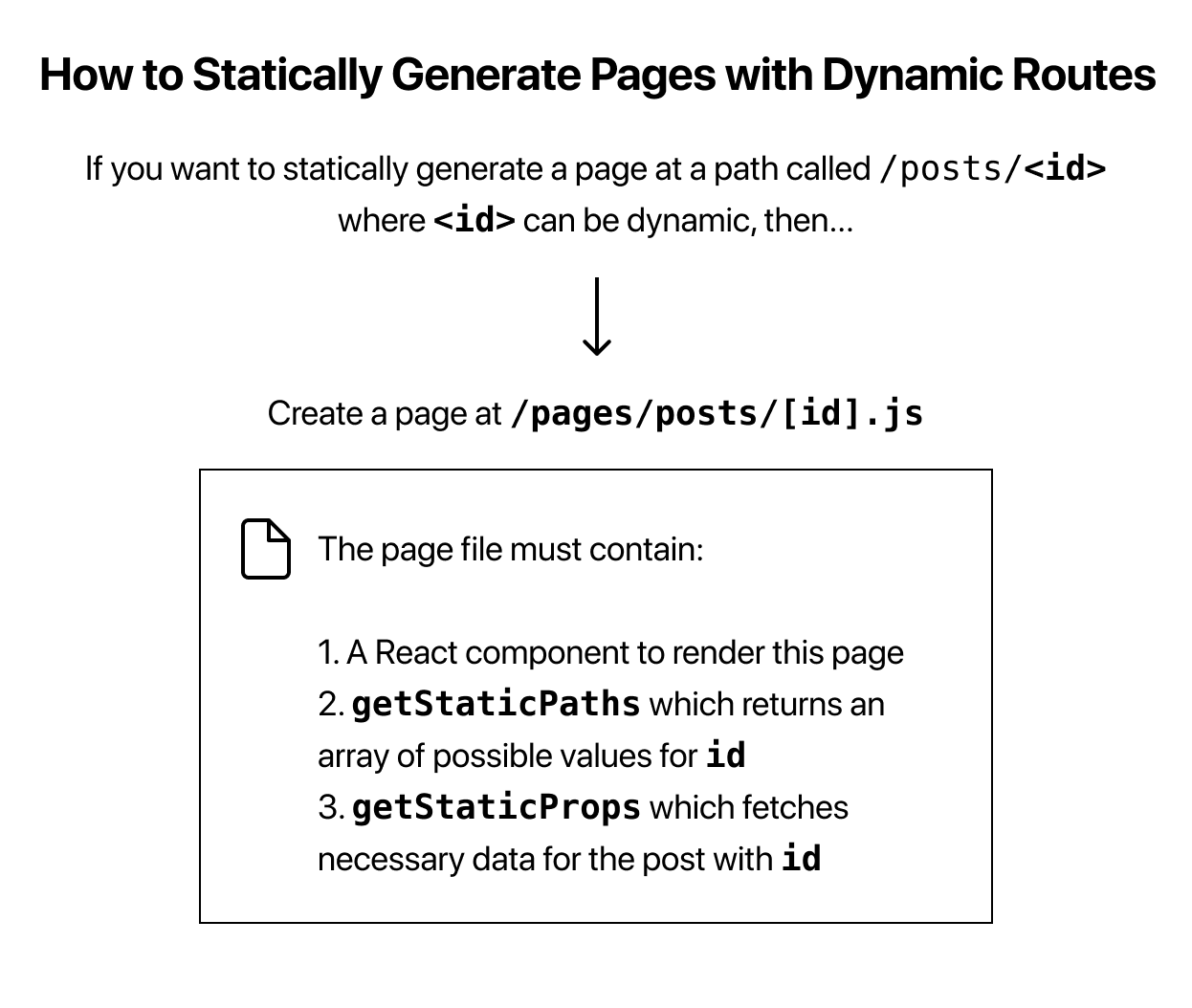Page Path Depends on External Data
In the previous lesson, we covered the case where the page content depends on external data. We used getStaticProps to fetch required data to render the index page.
In this lesson, we’ll talk about the case where each page path depends on external data. Next.js allows you to statically generate pages with paths that depend on external data. This enables dynamic URLs in Next.js.
Overview of the Steps
- First, we’ll create a page called id.js under pages/posts. Pages that begin with [ and end with ] are dynamic routes in Next.js. also write the following code
import Layout from '../../components/layout'
export default function Post() {
return <Layout>...</Layout>
}
- Now, here’s what’s new: We’ll export an async function called getStaticPaths from this page. In this function, we need to return a list of possible values for id.
import Layout from '../../components/layout'
export default function Post() {
return <Layout>...</Layout>
}
export async function getStaticPaths() {
// Return a list of possible value for id
}
- Finally, we need to implement getStaticProps again - this time, to fetch necessary data for the blog post with a given id. getStaticProps is given params, which contains id (because the file name is id.js).
import Layout from '../../components/layout'
export default function Post() {
return <Layout>...</Layout>
}
export async function getStaticPaths() {
// Return a list of possible value for id
}
export async function getStaticProps({ params }) {
// Fetch necessary data for the blog post using params.id
}

- Then, open pages/posts/[id].js in your editor and paste the following code. We’ll fill in … later:
import Layout from '../../components/layout'
export default function Post() {
return <Layout>...</Layout>
}
export function getAllPostIds() {
const fileNames = fs.readdirSync(postsDirectory)
// Returns an array that looks like this:
// [
// {
// params: {
// id: 'ssg-ssr'
// }
// },
// {
// params: {
// id: 'pre-rendering'
// }
// }
// ]
return fileNames.map(fileName => {
return {
params: {
id: fileName.replace(/\.md$/, '')
}
}
})
}
- Finally, we’ll import the getAllPostIds function and use it inside getStaticPaths. Open pages/posts/id.js and copy the following code above the exported Post component:
import { getAllPostIds } from '../../lib/posts'
export async function getStaticPaths() {
const paths = getAllPostIds()
return {
paths,
fallback: false
}
}
Deploy to Vercel
- Create a Vercel Account
First, go to https://vercel.com/signup to create a Vercel account. Choose Continue with GitHub and go through the sign up process.
- Import your nextjs-blog repository
Vercel is made by the creators of Next.js and has first-class support for Next.js. When you deploy your Next.js app to Vercel, the following happens by default:
-
Pages that use Static Generation and assets (JS, CSS, images, fonts, etc) will automatically be served from the Vercel Edge Network, which is blazingly fast.
-
Pages that use Server-Side Rendering and API routes will automatically become isolated Serverless Functions. This allows page rendering and API requests to scale infinitely.